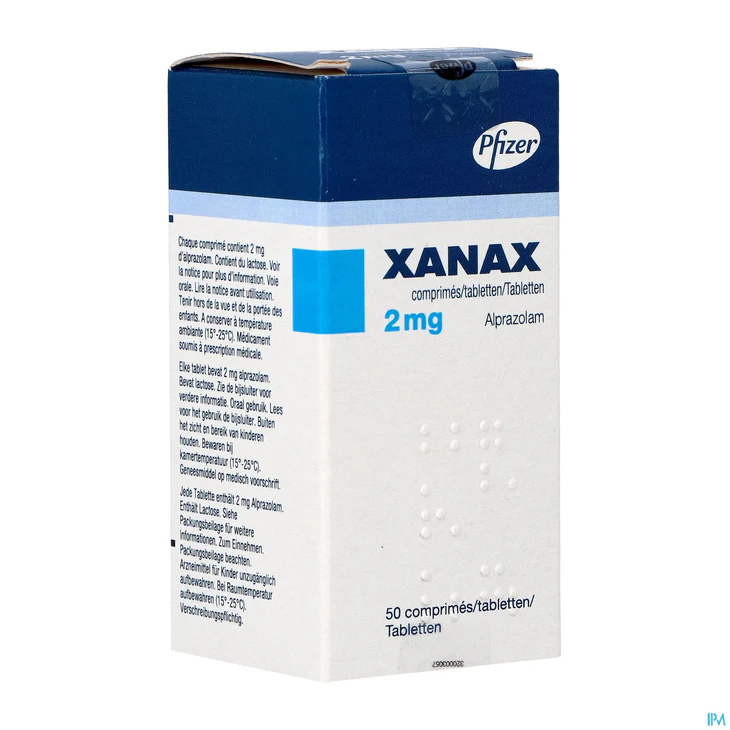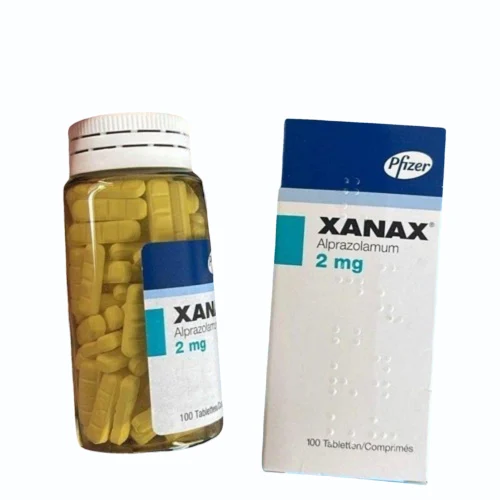Alprazolam (Xanax)
Alprazolam, sold under the brand name Xanax, is a benzodiazepine medication widely prescribed for the treatment of anxiety disorders, panic disorder, and severe stress-related conditions.
Belonging to the same drug family as diazepam (Valium) and lorazepam (Ativan), alprazolam is one of the most potent and fast-acting benzodiazepines. It works by calming overactive nerve signals in the brain, producing feelings of relaxation and relief from anxiety.
Medical Uses of Alprazolam (Xanax)
Doctors prescribe Xanax primarily for:
-
Generalized Anxiety Disorder (GAD)
-
Panic Disorder (with or without agoraphobia)
-
Short-term relief of severe anxiety symptoms
In some cases, alprazolam may be used for insomnia linked to anxiety, though other treatments are usually preferred.
Because of its fast onset of action, Xanax is often considered effective for sudden panic attacks. However, doctors usually prescribe it only for short-term or intermittent use due to risks of dependence.
How Alprazolam Works
Alprazolam enhances the effects of GABA (gamma-aminobutyric acid), the brain’s natural calming neurotransmitter. By binding to benzodiazepine receptors in the central nervous system, it helps slow down excessive brain activity.
This results in:
-
Reduced anxiety
-
Calmer mood
-
Decreased muscle tension
-
Relief from panic symptoms
Side Effects of Xanax
Common side effects:
-
Drowsiness
-
Dizziness
-
Fatigue
-
Impaired coordination
-
Slurred speech
Serious risks:
-
Memory problems (amnesia)
-
Dependence and addiction with long-term use
-
Overdose, especially when combined with alcohol or opioids
-
Withdrawal symptoms, which can be severe and include seizures if the drug is stopped suddenly
Dosage and Formulations
Alprazolam is available in:
-
Immediate-release tablets (commonly 0.25 mg, 0.5 mg, 1 mg, 2 mg)
-
Extended-release tablets (Xanax XR) for longer-lasting effects
-
Oral disintegrating tablets (ODT) in some regions
Doctors tailor dosage based on condition, severity of symptoms, and patient response.
Patients are strongly advised not to adjust doses without medical supervision.


Reviews
There are no reviews yet.